On July 22 last year, Nahid Islam, a key coordinator of the anti-discrimination student movement, announced an emergency four-point demand while law enforcement agencies carried out mass arrests across the country. The demands were issued with a 48-hour ultimatum and came alongside a temporary suspension of the movement’s "complete shutdown" programme.
Nahid’s four demands included: Full restoration of internet services nationwide, immediate withdrawal of the nationwide curfew, removal of law enforcement personnel from educational institutions and reopening of all residential halls and guaranteed safety for all coordinators of the quota reform movement across Bangladesh.
Despite the call for peaceful resolution, law enforcement agencies launched a widespread crackdown, arresting thousands, particularly targeting leaders and activists of the BNP and Jamaat-e-Islami. According to Prothom Alo, 1,200 individuals had been arrested by July 23 morning, while the total number of arrests since July 17 crossed 2,000. In just six hours between midnight and 6 am on July 23, 516 people were detained from various parts of Dhaka.
In addition, 164 cases were filed across the country in connection with arson, vandalism, and clashes—71 in Dhaka Metropolitan area, 14 in Chattogram, and 79 in other districts.
The Daily Star reported even higher numbers, stating that 1,427 people were arrested on July 22 alone, including 692 from Dhaka. The Dhaka Metropolitan Police (DMP) also launched multiple block raids to detain demonstrators.
Meanwhile, the human toll continued to rise. Six more injured protesters succumbed to their injuries on July 22—four at Dhaka Medical College Hospital (DMCH) and two at the National Institute of Neuro Sciences. According to New Age, DMCH handed over 70 bodies to families between July 19 and 22, pushing the total reported death toll to at least 155.
Although the situation remained tense, July 22 marked the third consecutive day of relative calm in the capital under a heavy curfew. Armoured vehicles, military patrols, and helicopters from police and RAB were visible across Dhaka. Protesters briefly blocked roads in Mohakhali before being dispersed.
As the curfew was relaxed for three hours between 2pm and 5pm, residents cautiously ventured out for essential tasks. However, many remained fearful of arbitrary arrests.
Chief of Army Staff General Waker-Uz-Zaman visited several key areas in the city, including Jatrabari—an area previously under intense resistance since July 17. He expressed hope that normalcy would soon return with the cooperation of all sectors.
High-ranking officials, including then IGP Chowdhury Abdullah Al-Mamun, RAB DG Md Harun-Ar-Rashid, and DMP Commissioner Habibur Rahman, also visited Jatrabari. Speaking to reporters, the IGP affirmed that "all involved in criminal acts will be brought to justice."
That evening, the then Prime Minister Sheikh Hasina signed off on a summary from the Ministry of Public Administration proposing quota reforms in government jobs. Earlier, during a meeting with business leaders at Ganabhaban, she blamed BNP, Jamaat, and Chhatra Shibir for the violence and warned of intensified action against them.
Home Minister Asaduzzaman Khan Kamal said the curfew would continue for stability but could be relaxed further depending on the situation. The government also declared July 23 a general holiday and extended the nationwide internet blackout for a fifth consecutive day.
Meanwhile, the University Teachers` Network (UTN) released a statement demanding an end to the curfew and restoration of internet access. The group also called for an immediate halt to extrajudicial killings and urged authorities to account for those who had gone missing during the protests.


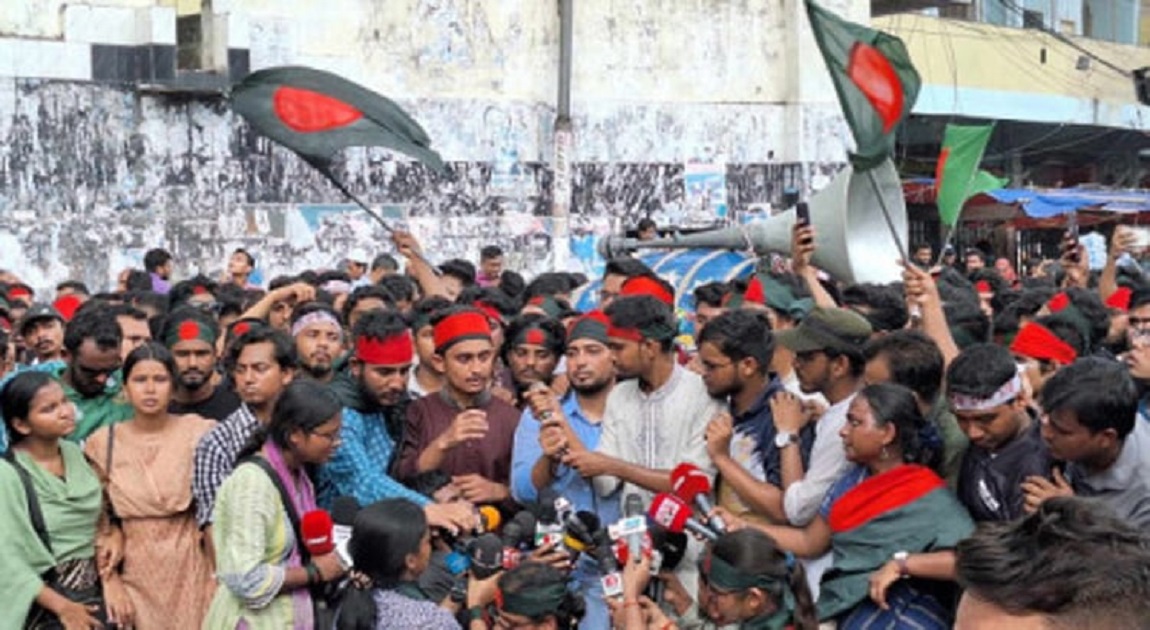

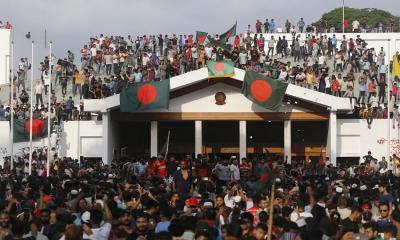
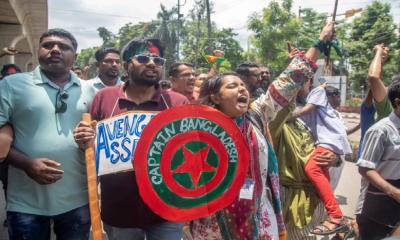
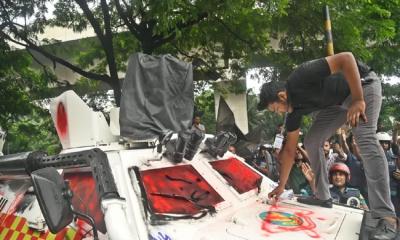
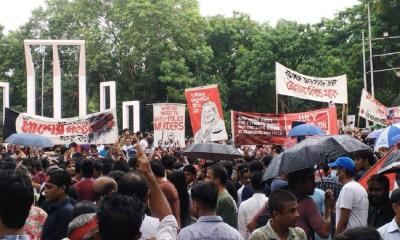
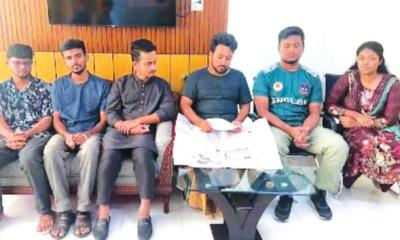
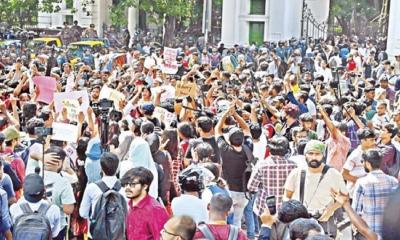
-20260228080513.webp)
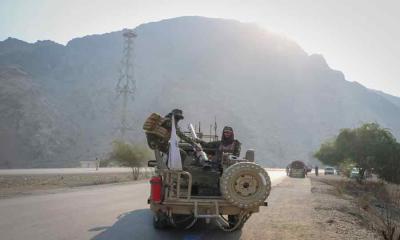
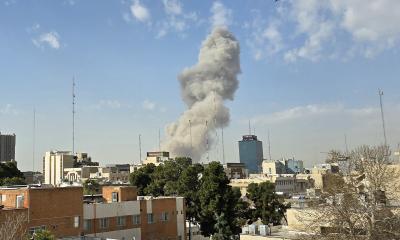
-20260228064648.jpg)
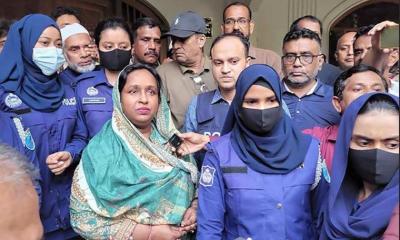
-20260228063029.jpg)
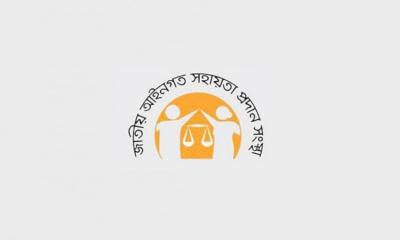
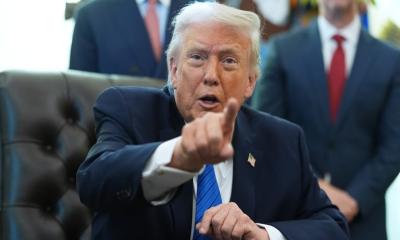
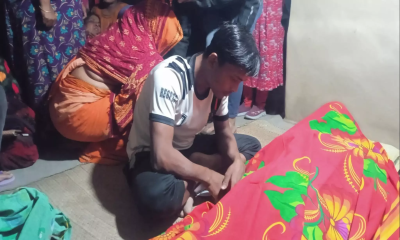

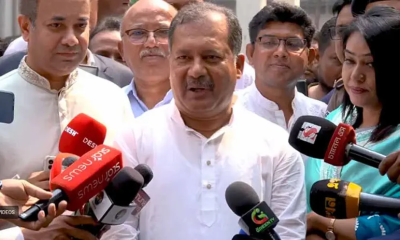
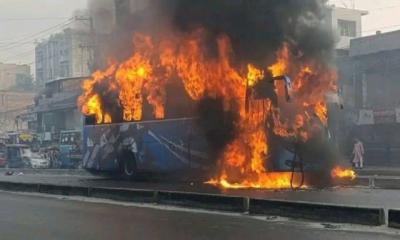
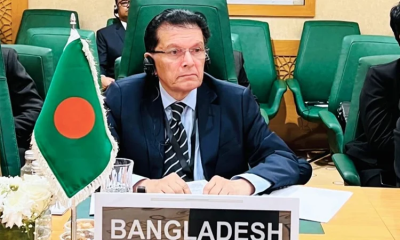

-20260227090008.webp)




-20260224075258.webp)







-20260221022827.webp)

